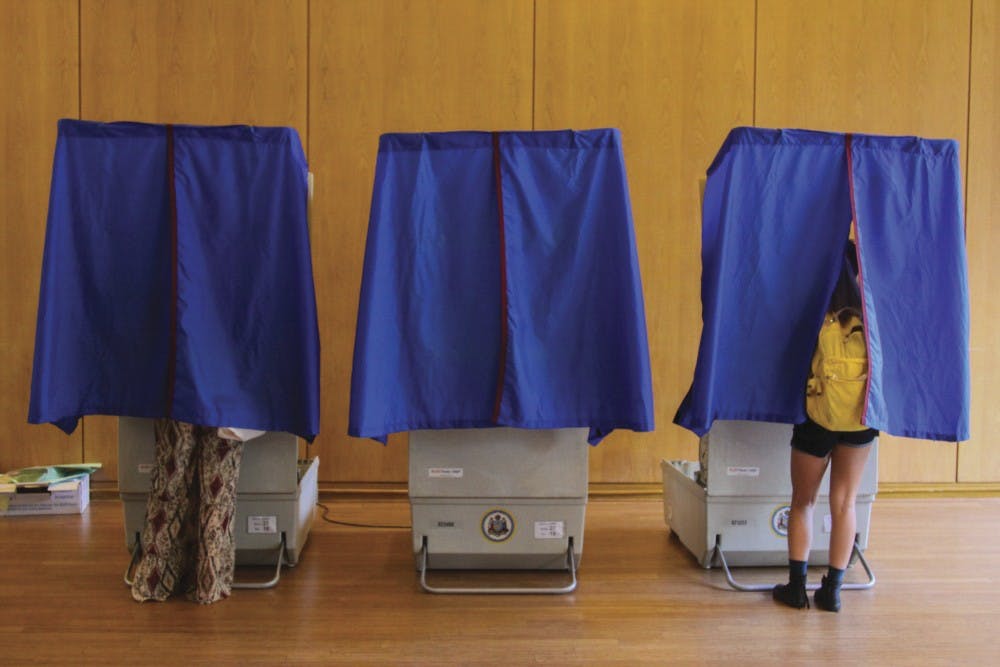
The report calls for inovation and change in the electoral system.
Credit: Tiffany PhamIn a world where technology seems to be constantly expanding, the voting technology that facilitates the election of public officials somehow has not changed a bit.
In March this year, Wharton professor Lorin Hitt and a team of six Wharton undergraduate students — five who graduated in 2016 — published a report titled “The Business of Voting, Market Structure and Innovation in the Election Technology Industry.” The report claims that the current voting technology is outdated and called for the development of more reliable and advanced machinery.
The report examines barriers to innovation often faced in the industry and offers solutions.
2016 Wharton graduate and current Wharton graduate student Matthew Caulfield emphasized the importance of making election technology a “salient issue.”
“Policymakers should be aware of the ‘crisis,’ and should seek advice and support from the variety of organizations out there who work in this space,” he said.
Aside from policymakers, student author and Wharton MBA student Michael Windle said it is imperative that voting technology be improved in order to ensure more Americans vote and feel comfortable in the system in place.
“Everything we can do to make the voting experience more trustworthy and more efficient is a step towards ensuring higher participation in our democratic processes,” he said.
The report cited a survey of voters conducted in relation to the 2016 election, which found one in five Americans who voted in the presidential election reportedly did not trust that the national election results were “accurately tabulated.”
Smartmatic, a company specializing in technology solutions, released a survey in 2016 that found eight in 10 voters and nearly 90 percent of poll workers believe that more advanced technology could restore faith in the U.S. voting system.
The long-term solution to the crisis of the election technology industry will not be achieved until policymakers acknowledge the business issues and take action in changing the inherent structure of this industry, Caulfield said.
“Innovation needs to happen,” he added. “I don’t think we really have a choice.”
The Daily Pennsylvanian is an independent, student-run newspaper. Please consider making a donation to support the coverage that shapes the University. Your generosity ensures a future of strong journalism at Penn.
Donate



